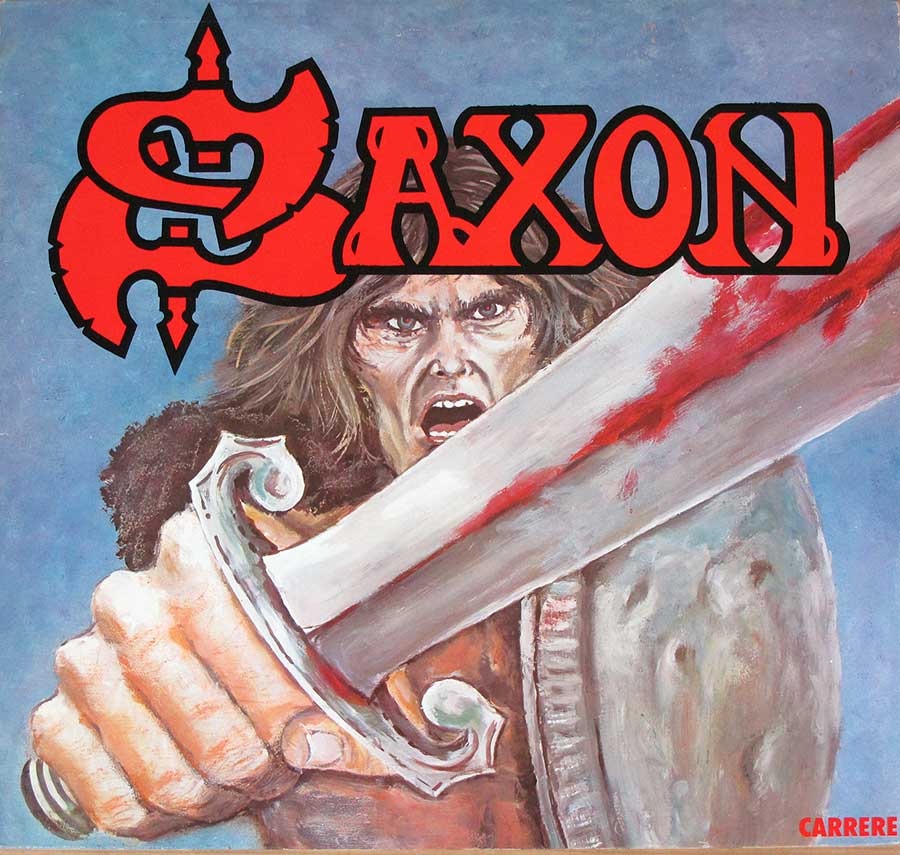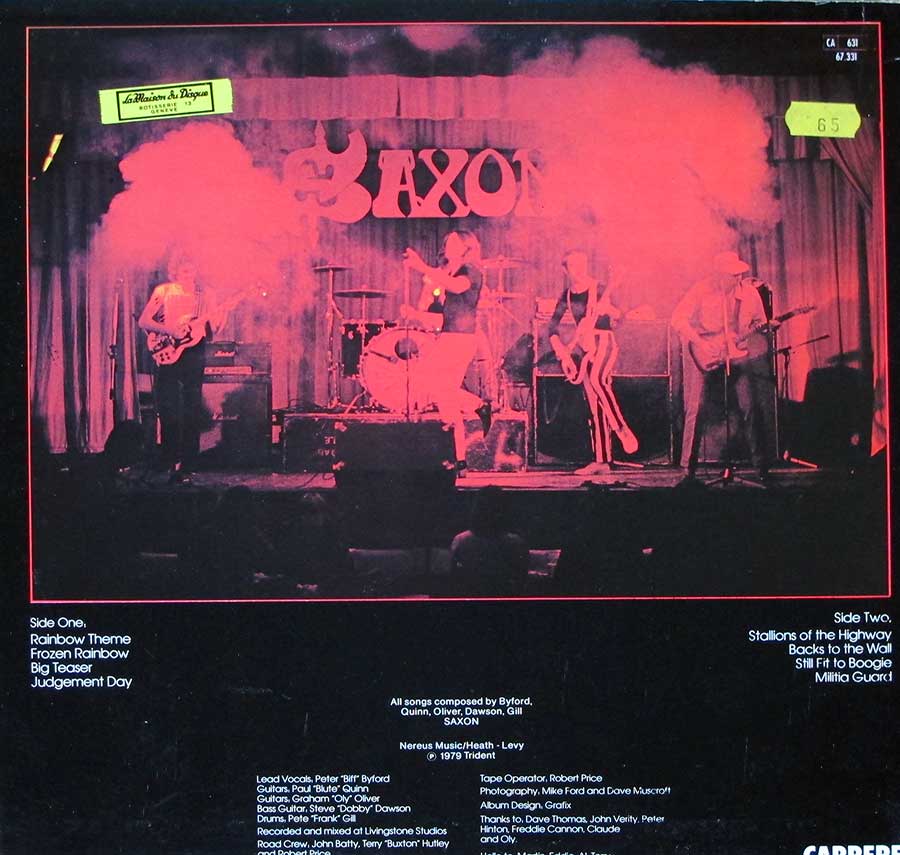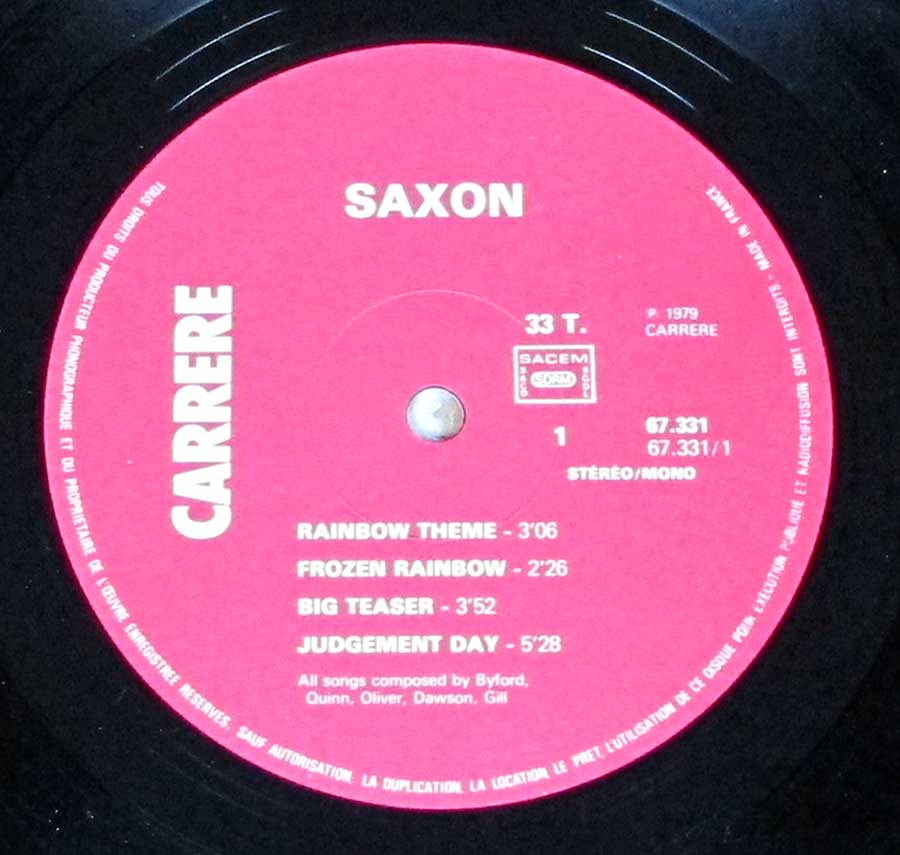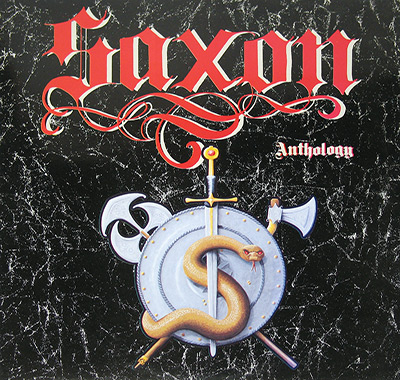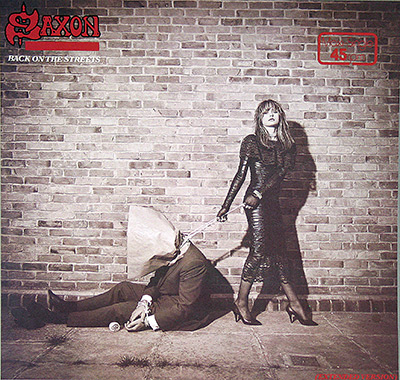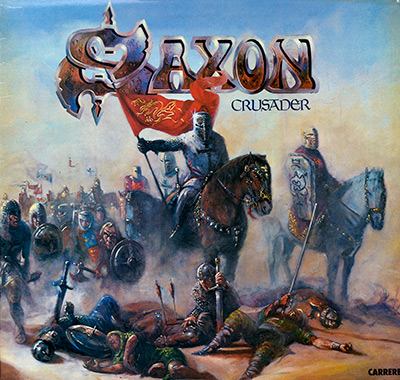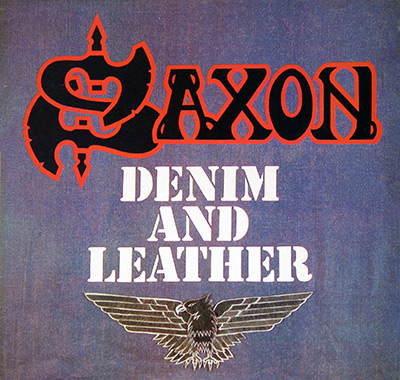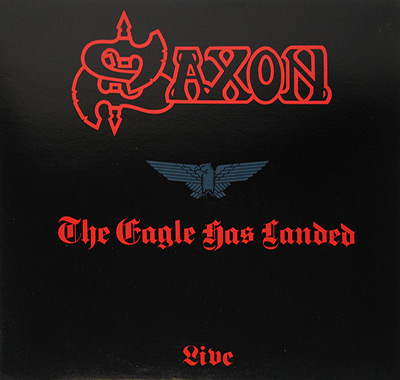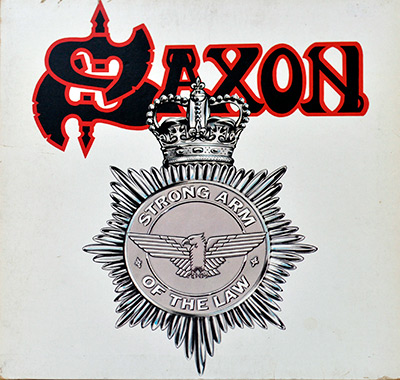Biff Byford, Saxon's storm-tested voice, is the bloke who can turn a chorus into a pub chant and a battle order in the same breath. I first clock him in the mid-1970s fronting Son of a Bitch, then he takes the wheel when Saxon forms in 1976 and never really lets go. The NWOBHM years are where he stamps the passport: "Wheels of Steel" and "Strong Arm of the Law" (1980) push them into headliner territory, and "Denim and Leather" (1981) seals the tribe. The mid-80s gloss got purists grumbling, but he kept touring and recording through the 1990s. Later he went solo with "School of Hard Knocks" (2020) and formed Heavy Water with his son. He never sang like he was asking permission.
SAXON - SELF-TITLED - 12" LP Vinyl Album French Release
Saxon's eponymous 1979 debut, a cornerstone of the NWOBHM movement, signaled a new era in heavy metal. Released during a pivotal time, its raw production and anthemic tracks, like "Stallions of the Highway," left an indelible mark. The French 12" LP vinyl release added elegance, contributing to the album's enduring legacy as a pioneering force in British heavy metal.
